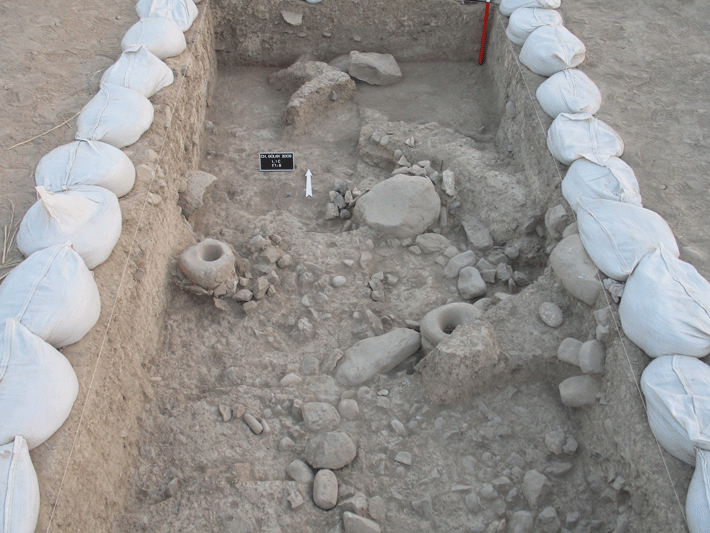 TEHRAN, IRAN—Evidence recovered from the village of Chogha Golan in western Iran supports the idea that farming developed there independently some 11,500 years ago, at roughly the same time that hunter-gatherers began to cultivate plants in Israel, Palestine, Syria, Jordan, and eastern Turkey. Archaeologist Nicholas Conard and archaeobotanist Simone Riehl of the University of Tübingen in Germany, and Mohsen Zeidi and other researchers from the Iranian Center for Archaeological Research in Tehran, found mortars, pestles, and grinding stones for processing plants, in addition to more than 21,000 pieces of charred plant remains. Domesticated forms of wheat appeared in Chogha Golan some 9,800 years ago. The scientists suggest that climatic and environmental conditions at the end of the Ice Age made farming “more or less inevitable.”
TEHRAN, IRAN—Evidence recovered from the village of Chogha Golan in western Iran supports the idea that farming developed there independently some 11,500 years ago, at roughly the same time that hunter-gatherers began to cultivate plants in Israel, Palestine, Syria, Jordan, and eastern Turkey. Archaeologist Nicholas Conard and archaeobotanist Simone Riehl of the University of Tübingen in Germany, and Mohsen Zeidi and other researchers from the Iranian Center for Archaeological Research in Tehran, found mortars, pestles, and grinding stones for processing plants, in addition to more than 21,000 pieces of charred plant remains. Domesticated forms of wheat appeared in Chogha Golan some 9,800 years ago. The scientists suggest that climatic and environmental conditions at the end of the Ice Age made farming “more or less inevitable.”